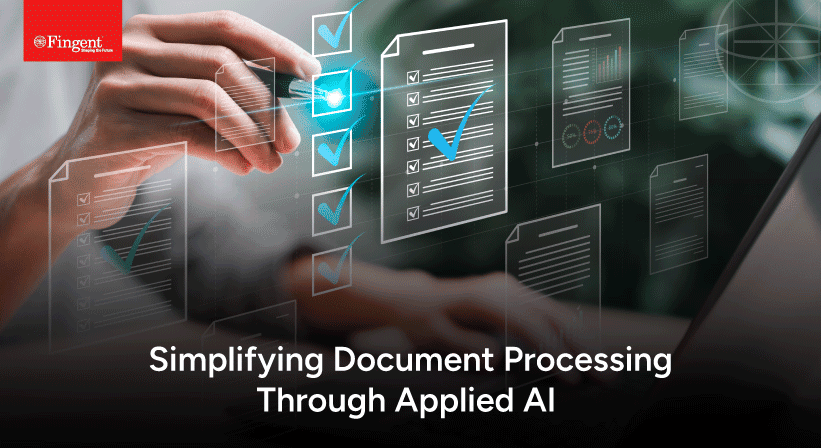Quantum vs. Neuromorphic Computing: What Will the Future of AI Look Like?
Warning: in_array() expects parameter 2 to be array, null given in /home/www/fingenttest/public/wp-content/themes/fingent/template-parts/content.php on line 37
Warning: in_array() expects parameter 2 to be array, null given in /home/www/fingenttest/public/wp-content/themes/fingent/template-parts/content.php on line 81
AI is not just a technology; it has become part of daily lives. Thanks to AI, we witness new kinds of development in each sphere of life every day. We can access many points with AI now more than we could ever before. From the research that we do on the internet to the goods that come to our doors, AI is directing our lives and business. It has solved many problems faced by humanity. And, revolutionized technology in all industries.
Coined at Dartmouth College in 1956, Artificial Intelligence (AI) gave succeeding generations a potential for information technology that can benefit humans in a profound way. Apart from bringing efficiencies, AI is also bringing new possibilities. These possibilities continue to create new models and opportunities for businesses that tap into them. Quantum and neuromorphic computing is the way forward.
This blog takes a deeper look into quantum and neuromorphic computing and explores which companies can benefit from these technologies.
A Look at The Future Of AI
The possibilities Artificial Intelligence can create are seemingly endless. Innovations are constantly taking place in the AI world. Given that, many business and information technology leaders are looking to better understand how it will affect their business now and in the future.
Taking a look at the future scenarios for how AI could evolve can help IT leaders demystify this emerging technology. Two such technologies are called neuromorphic or quantum computing. They offer us a new way forward by fulfilling our AI-related dreams. The quantum computing market alone is expected to reach $2.2 billion by 2026, so it’s definitely worth looking into.
The future of AI also depends on improving the capacity of intelligent systems by using powerful hardware. Hardware such as neuromorphic computing and quantum computing will allow companies to build AI solutions that are extremely fast and can encapsulate more data and knowledge.
For example, a virtual assistant may now have the computing capacity to handle one or two products. But with more powerful hardware, it could cover more products. Advantages in this area are ongoing.
Let’s examine these in detail.
Read more: Answering The Top Burning Questions On AI Implementation For Businesses!

A Deeper Look into Quantum and Neuromorphic Computing
Neuromorphic computation and quantum computing always seemed that they were years away. The fact is commercial neuromorphic chips and quantum computers are in use today. These two new technologies are going to change what looked like a straight path to Artificial Intelligence.
1. Neuromorphic computation
Neuromorphic computation attempts to imitate the way a human brain works. In simple terms, hardware and software elements of a computer are wired to mimic the human nervous system and cerebral system.
The goal of neuromorphic computation is to create devices that can learn, retain information, and make logical deductions just like a human brain does. It also attempts to imitate the human brain by searching for new information.
However, unlike quantum computing neuromorphic computing does is not that demanding. Where quantum computers need temperatures close to absolute zero, neuromorphic computers can easily work in normal conditions.
This increases its practicality and potential to integrate this technology in all kinds of devices.
2. Quantum computing
Quantum computing deals with the world of atoms and subatomic particles inside those atoms. Unlike neuromorphic computation, quantum computing works on the principle of quantum entanglement.
So, the smaller the computer gets, the more powerful they seem to become. Quantum computing provided powerful new possibilities.
Though it is more complex than traditional computing, quantum computing opens the door to potentially solving very large and complex computational problems. It can potentially deliver a big computational upgrade for ML and AI computing.
Quantum computers will not replace traditional computers. Instead, they will require the support of traditional computers for their specialized abilities.
Read more: Driving Business Innovation and Success Through Sustainability

Industries That Can Leverage Quantum Computing and Neuromorphic Computation
1. Industries That Can Leverage Neuromorphic Computation
a) Aerospace and defense: Neuromorphic computing architecture can help in pattern recognition, event reasoning, and robust decision-making. It can also aid in adaptive learning and autonomous tasking for energy-efficient agile Air Force platforms.
b) Self-driving cars: Similar to space communications, neuromorphic computing enhances self-driving. In imitation of the human brain, neuromorphic chips attempt to think and learn on their own and then adapt their learning to unexpected scenarios on the road.
While conventional computers run commands sequentially, neuromorphic computers process and store data almost at the same time. This makes self-driving cars more energy efficient. It can also help autonomous vehicles learn skills and execute tasks more efficiently.
c) Healthcare: Neuromorphic platforms can be used for the hardware-based implementation of ML methods in treating Chronic Obstructive Pulmonary Disease (COPD) in home-care environments. Real-time analysis of data can be obtained by bringing data from the backend onto a neuromorphic chip.
Furthermore, securing sensitive medical data on a single chip complies better with patient privacy regulations. Since neuromorphic platforms process data near a patient, it offers a large fault tolerance for medical applications.
Moreover, hardware-based neuromorphic systems require less computational power making them perfect for PoC medical devices.
2. Industries That Can Leverage Quantum Computing
a) Aerospace: By considering an exponential number of variables, quantum computing could help determine the optimal alternative for each route. It can also help find the best way to allocate resources so that the crew and passengers are impacted as little as possible.
b) Healthcare and Pharmaceuticals: Harnessing the power of quantum computing can significantly accelerate the timelines of various stages of the pharmaceutical research and development process. It can help life science companies by accelerating the speed of the pre-clinical phase and reducing the cost of drug development.
c) Finance: Quantum computing will be able to help solve the problems of customers in finance institutes. It can optimize investment portfolios and financial derivatives. It can also enable the institutions to accurately characterize anomalous transactions and rapidly detect fraud.
d) Chemistry: It is likely that quantum computing can be applied to simulate the properties and behavior of new molecular structures in chemistry. It can address the probabilistic challenges of quantum mechanics. In the future, quantum computing is expected to predict molecular properties for new molecules.
Read more: Data and AI: How It Has Transformed Over The Years And Trends To Watch out For!

Conclusion
In the coming years, advances in Artificial Intelligence will reach the superintelligence stage. However, the transition to new technology has already begun.
Many companies are incorporating this unique fixture as it has helped them achieve better sales and forecasts. It has also provided them with growth opportunities. Fingent top custom software development company is confident that you would also benefit from implementing this in your business.
Give us a call and let’s discuss what is best for your business.
Stay up to date on what's new

Recommended Posts

08 May 2024 Financial Services B2B
AI Shaping the Future of Financial Services: Use Cases & Applications
As Dan Schulman, the CEO of PayPal once said, “We're not trying to reinvent the wheel; we're trying to perfect it.” Achieving perfection is no easy process. It is not……

24 Apr 2024 B2B
A Leader’s Blueprint for AI Success
"Leaders, embrace AI! Make it your superpower!" - Robert Barber, Leadership Development Trainer and Executive Coach. How Are Businesses Using AI? The verdict is crystal clear—leaders today must embrace AI to……

18 Apr 2024 B2B
Applied AI For Document Processing
"It's becoming increasingly clear that AI is the future, and almost everything else is a sideshow." - World-renowned computer scientist Geoff Hinton AI has taken over almost every aspect of……

21 Feb 2024 B2B
Stepping The AI Revolution with Applied AI
“I am telling you, the world’s first ‘trillionaires’ are going to come from somebody who masters AI and all its derivatives and applies it in ways we never thought of.”……
Featured Blogs
Stay up to date on
what's new















 US
US Insurance
Insurance









































